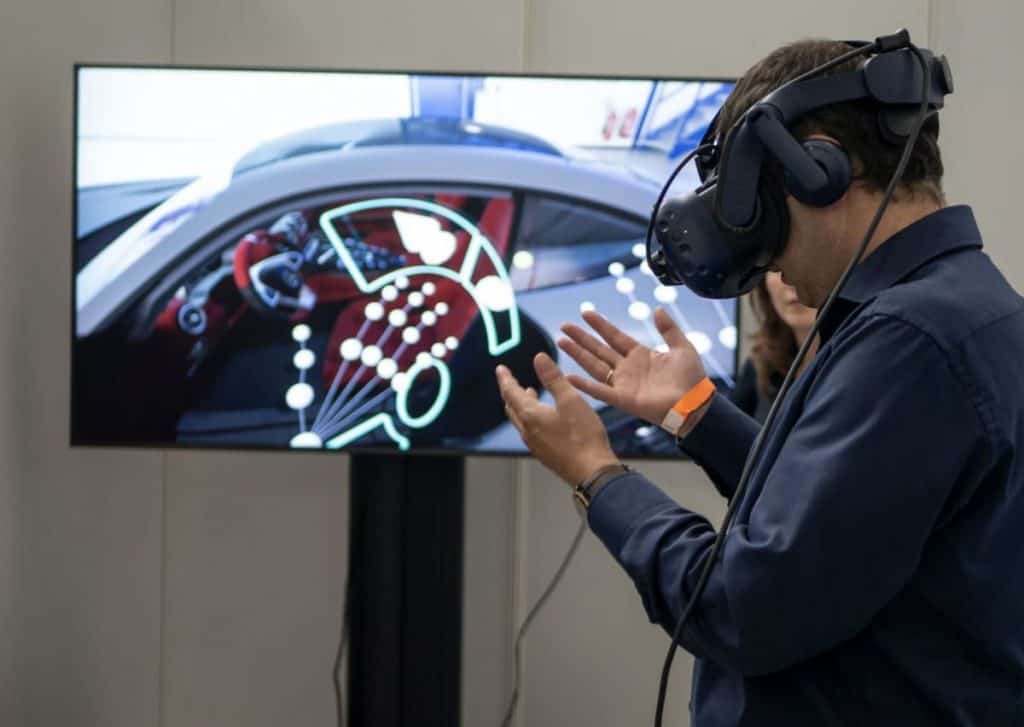VR learning hits 10 universities—and outer space


Two stories this week join forces to prove the incredible, real-life impact that metaverse learning can offer education for the future. First, Iowa Capital Dispatch reported on Tuesday that VictoryXR has successfully created VR campuses and classrooms for ten universities across the United States. The same day, news dropped that the International Space University offered its first onsite lecture in the metaverse with the help of Web3 company Metavisionaries.
Both prove that ready or not, VR learning will be the way of tomorrow. While conversations about Web3 often focus on the very narrow and often farcical scope of NFTs and cryptocurrencies, news cycles like this show a much larger societal shift afoot. Students are starting to favor remote over on-campus learning, a change compounded by the pandemic.
VictoryXR, which received a global award for innovation in education last September, started this project at the request of Morehouse College in Atlanta. The school approached the Davenport-based firm to help students struggling with online learning during the pandemic. 10 weeks later, Morehouse had the coursework. VictoryXR brought the software. Students at Morehouse can study inorganic chemistry, world history, and biology in VR.
Meanwhile, Meta brought the hardware. All those Oculus Quest 2 headsets would be quite the cost for any school, no matter their endowment.
“Morehouse is one of 10 higher education institutions to qualify for virtual classrooms through a grant from Meta,” Iowa Capital Dispatch wrote. “According to a public records request filed by The Chronicle of Higher Education, the universities will receive more than $500,000 and virtual-reality headsets under their contracts with VictoryXR.”
VictoryXR has also built solutions for University of Kansas, West Virginia, and Cal State so far.
Over in Técnico, Portugal, the International Space University (ISU) hosted their first-ever hands-on lecture in the metaverse titled “How the human body functions in the unique environment of space.” The talk took place “as part of the university’s 34th edition of its Space Studies Program (SSP),” according to iTnews.
They’ve been developing VR programs for two years, but SSP22 marked the ISU’s first effort at implementing the approach.
“Thank you Metavisionaries and the CEO Wasim Ahmed, thank you very, very much on behalf of ISU for giving us this great opportunity and also providing us all the virtual reality [goggles] that we are using for this event,” SSP22 director and manager Arif Goktug Karacalioglu said.
It seems that companies promoting VR are taking a notorious drug dealer approach to encourage adoption–giving the target a little taste, so they get hooked and come back for more. Here, more hardware, more software, more participation, and experience. That raises all kinds of ethical issues, especially about privacy.
Iowa Capital Dispatch noted that Meta’s hardware can collect data while worn.
“Universities retain the ultimate ownership of data generated in the partnership,” they reported, via The Chronicle. “Data collection will depend on the brand of headset students use, according to Grubbs. Technology from the grant could come from Meta, Pico Technology or HTC, all with their own privacy data opt-in policies.”

Grubbs said that at this time, “no information is being gathered from users.” VictoryXR promises not to collect anything beyond the email and name necessary to open an account. However, users will need to login to Facebook in order to enter their virtual classroom.
Furthermore, Oculus products collect information about the user’s physical features, environmental movements, and hand sizes for tracking improvement.
When it comes to education, less privacy could actually be a good thing. Hear me out. I never really learned accounting in business school even though I passed. We took our exams on unsupervised personal laptops–the savviest kid in the class figured all the answers out and shared them around. That experience, on the other hand, did teach something about business.
Grubbs told Iowa Capital Dispatch that those studying health sciences will benefit the most from VictoryXR’s VR classrooms. “A teacher can take a human heart out of a cadaver and hand it to another student,” he said–something that’s not possible in every lab space, and certainly difficult from home. However, there’s potential for history and humanity students all the same. VictoryXR even re-created a metaverse version of the courtroom from Harper Lee’s “To Kill a Mockingbird.”
“You can understand the book from the perspective of those who sat in the courtroom,” Grubbs remarked. “That’s what we are trying to achieve, is an understanding that can only [be] gained by being there. Students get to go stand on the Great Wall of China, they can go to Iceland and they can go to the Redwoods Forest once they are learning with our virtual reality.”
VictoryXR holds the ambitious goal that “every school in [the] world will have a metaversity in the next five to seven years.” They plan to start by opening their first in Europe this August before exploring opportunities in India starting September 2022.
Meanwhile, Metavisionaries will team up with Ice Cubes and the College of Business and Economics at Qatar University “to launch a global business sustainability space challenge related to the FIFA World Cup.”
Metaverse learning, now taking over the Earth… and beyond.
Read related posts:
Disclaimer
In line with the Trust Project guidelines, please note that the information provided on this page is not intended to be and should not be interpreted as legal, tax, investment, financial, or any other form of advice. It is important to only invest what you can afford to lose and to seek independent financial advice if you have any doubts. For further information, we suggest referring to the terms and conditions as well as the help and support pages provided by the issuer or advertiser. MetaversePost is committed to accurate, unbiased reporting, but market conditions are subject to change without notice.
About The Author
Vittoria Benzine is a Brooklyn-based art writer and personal essayist covering contemporary art with a focus on human contexts, counterculture, and chaos magic. She contributes to Maxim, Hyperallergic, Brooklyn Magazine, and more.
More articles

Vittoria Benzine is a Brooklyn-based art writer and personal essayist covering contemporary art with a focus on human contexts, counterculture, and chaos magic. She contributes to Maxim, Hyperallergic, Brooklyn Magazine, and more.





















































